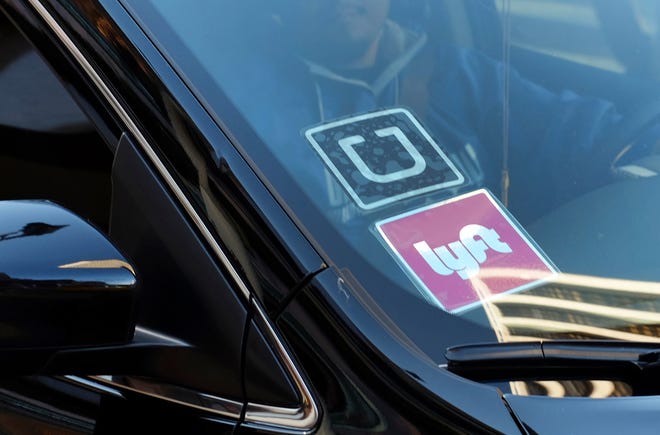Uber, Lyft keep contractor status for drivers
Joel Rosenblatt, Robert Wilkens-Iafolla
Bloomberg News
In one fell swoop, Uber Technologies Inc. and Lyft Inc. on Tuesday fended off labor protections that were decades in the making, allowing the companies to keep compensating their drivers as independent contractors.
(BACK TO THE SIXTIES WITH PROVISIONS IN EMPLOYMENT LAW THAT CAN EXCLUDE TRAVELING SALESMEN AND CAB DRIVERS THAT ALBERTA USED TO HAVE)
By design, very little will change under the ballot measure approved by California voters that was underwritten by the ride-hailing companies, along with Instacart Inc., DoorDash Inc. and Postmates Inc.
While Proposition 22 requires these app-based transportation services to offer some modest new perks for drivers, it protects them from having to provide much costlier benefits that full-time employees get
By design, very little will change under the ballot measure approved by California voters that was underwritten by the ride-hailing companies, along with Instacart Inc., DoorDash Inc. and Postmates Inc.
While Proposition 22 requires these app-based transportation services to offer some modest new perks for drivers, it protects them from having to provide much costlier benefits that full-time employees get
.
For the companies, that makes the more than $200 million they and their supporters spent on the ballot measure campaign — a record for the most populous state — worth every penny, according to William Gould, a professor at Stanford Law School.
“Two hundred million plus is much cheaper from their perspective than paying the employees these benefits that the legislature has established for them,” said Gould, a former chairman of the National Labor Relations Board under President Bill Clinton.
Shares of Uber and Lyft surged the most in several months on the election outcome. Lyft’s stock advanced 12% by 11:40 a.m. in New York trading, while Uber was up 13%. The reaction from investors Wednesday reflects not just the stakes in California but also expectations of what will happen elsewhere.

For the companies, that makes the more than $200 million they and their supporters spent on the ballot measure campaign — a record for the most populous state — worth every penny, according to William Gould, a professor at Stanford Law School.
“Two hundred million plus is much cheaper from their perspective than paying the employees these benefits that the legislature has established for them,” said Gould, a former chairman of the National Labor Relations Board under President Bill Clinton.
Shares of Uber and Lyft surged the most in several months on the election outcome. Lyft’s stock advanced 12% by 11:40 a.m. in New York trading, while Uber was up 13%. The reaction from investors Wednesday reflects not just the stakes in California but also expectations of what will happen elsewhere.
By establishing a template for a hybrid classification of worker that breaks from the traditional employee-or-contractor mold, Proposition 22 may have broader ramifications. If the rule works out well for both the workers and companies it could influence a push for legislation in other states or on the federal level, legal experts said.
“Legal pushback may continue, but Proposition 22 sets the tone for other states to follow in recognizing gig workers as a central part of today’s economy and the future of work,” said Jesse Jauregui, partner with Alston & Bird. “Proposition 22 is pointing to a new third way’ of structuring the nature of work and may become the model for other gig workforces to follow.”
Uber and Lyft have long pushed federal and state lawmakers to adopt a “third classification.”
Some federal lawmakers have also pushed “portable benefits” that would give some benefits to drivers, but not give them the full employment entitlements or put the companies on the hook for liability.
By no stretch is Tuesday’s vote a global panacea for the ride-hailing industry, which has been ravaged by the coronavirus pandemic.
Uber and Lyft will continue to face court challenges to their labor model elsewhere in the U.S. and abroad.
No comments:
Post a Comment